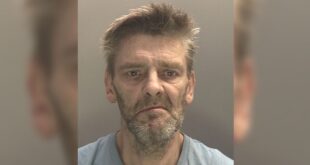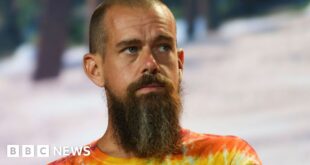Campaign signs began to appear on St. John’s streets last Friday morning on the eve of the first anniversary of a ferocious winter storm that paralyzed eastern Newfoundland and became known as “Snowmageddon.” The record-breaking snowfall led to a declaration of a state of emergency and the intervention of the Canadian Forces to restore a semblance of everyday life.
Later on Friday, as the supper-hour TV-news programs went to air and a storm packing 100 km/h winds bore down on St. John’s, Newfoundland and Labrador Premier Andrew Furey announced there would be a winter election.
The election comes in the midst of a pandemic in a financially beleaguered province that faces insolvency without Ottawa’s assistance, except, this year, it won’t be the Canadian Forces coming to the rescue, it will be the Bank of Canada. At dissolution, Furey’s Liberal party held 19 of the 40 seats in the provincial House of Assembly. The Progressive Conservative opposition led by lawyer Ches Crosbie, son of the late John Crosbie, (a longtime provincial and federal cabinet minister), held 15 seats. The remaining six seats are divided between three New Democrats and three Independents.
Furey’s tenure in elected office can be measured in months — three, to be exact. Furey, a surgeon and son of Canadian Sen. George Furey, inherited a provincial debt he has described as “crushing” in a province whose economic outlook he calls “dire.” In announcing the election last Friday, Furey called this moment the province’s “darkest economic hour.” As he looked into the cameras and read from a teleprompter, Furey told voters this election is about leadership, that “all we need is courage,” and “I am ready.”
READ MORE: Incoming premier Dr. Andrew Furey says ‘everything’ is on the table to cure N.L.’s disastrous debt
After Furey’s announcement, Crosbie stood in front of the TV cameras and told voters that Newfoundland and Labrador is “teetering on the edge of financial ruin,” “hanging on by (its) fingernails,” and facing a “once-in-a-lifetime economic emergency.” The election, said Crosbie, is about “jobs and growth,” and “who has a plan to bring back jobs.”
When Furey was running for the Liberal party leadership in August, he talked about “re-imagining” and “right-sizing” government. What that would look like has become the task of an economic-recovery team he assembled under the direction of Moya Greene. Greene, a St. John’s native, headed Canada Post, later the United Kingdom’s Royal Mail, and comes with a reputation for privatization. Whether that reputation is deserved or not, the recovery team has already lost one member, a representative of the provincial Federation of Labour, who described Greene’s team as “window dressing.”
Shortly after accepting the position with the recovery team, Greene acknowledged there would be “trade-offs,” which is understood by most voters as a euphemism for service cuts. Whether that means cuts to health care, ferry services, or property taxes in rural communities where there are currently few voters, we won’t know until the recovery team submits an interim report expected by Feb. 28, two weeks after election day on Feb. 13.
Crosbie is telling voters that Furey has “a secret plan.” The opposition leader calls it “a slash-and-burn agenda.” In an August interview with iPolitics, Furey, borrowing from his experience as a surgeon, observed that, sometimes, “it is necessary to cut off a leg to save a patient.”
On Friday, Crosbie replied by saying he’d like his doctor “to tell me if he plans on cutting off my limbs before I have an amputation.”
If Furey’s choice of an election date means he goes to the polls before “trade-offs” are announced — meaning limbs are designated for amputation and the government brings in an austerity budget — then he wouldn’t be the first political leader to go to the polls before bearing bad news. Furey, however, has three other reasons to call an election sooner rather than later.
First, according to a public opinion poll published in the fall, Furey enjoyed a 32-point lead over Crosbie.
Second, Furey and the province’s team of health-care professionals have led a pandemic response that is the envy of other provinces. Since Jan. 1, there have been only five new cases of COVID-19 identified in the province, all of them travel-related. There is no community spread of the coronavirus in Newfoundland and Labrador. There is no stay-at-home order, no curfews, and schools and daycares are open.
Last, New Brunswick, British Columbia, and Saskatchewan have all held elections during the pandemic that resulted in wins for the governing party, and, in the case of New Brunswick and B.C., minority governments won majorities. Barroom betting in Newfoundland and Labrador suggests a similar outcome is likely on Feb. 13.
This story was copy-edited after publication, on Jan. 18 at 4:07 p.m.
More from iPolitics
Source link

